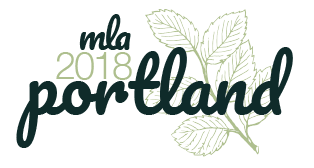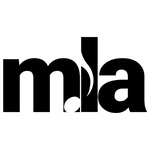2018 Meeting in Portland, Oregon

January 31-February 4, 2018
Hilton Portland Downtown
921 SW Sixth Avenue
Portland, Oregon, 97204
Conference Program
Strategies for Archival Description of Music Scores: Unveiling the New MLA Supplement to DACS
In the session, Working Group members will explain the rationale behind the Group’s charge, their approach to creating the supplement, and how it will benefit both music librarians and archivists.
Do Your Students Know RISM from RILM? Automate a Music Resource Matchmaker
The Music Resource Matchmaker uses simple survey technology to recommend an appropriate database based on patron input. Most importantly, because this tool is DIY, the Matchmaker can highlight local collections and support local curriculum and programming.
What to Expect When You’re Analyzing, Transforming, and Inputting: A Linked Data Guide
In this session, a leading figure in the field of knowledge organization will discuss a project to analyze terms used to classify scores in a database of Renaissance polyphony and map them to Linked Data vocabularies.
Public Services Town Hall
Public Services Committee Town Hall: This moderated town hall session will be an opportunity for Public Services Committee members to provide concise overviews of the current work of each subcommittee.
What I learned in Library School and Real Life: Advice for Students and New Professionals
Conference Video available:
“Squiggly lines:” information literacy, music librarian/performers, and practicing what we preach
Many music librarians participate in professional and amateur music making. We face similar performance practice/interpretive issues as do our music library users. This panel discussion focuses on application of the ACRL Framework for Information Literacy to performance practice in experimental music.
Information Literacy for Music Graduate Students: A Framework Application
The syllabus for a graduate-level bibliographic research course in music at Western Michigan University (WMU) provides an opportunity to link Frames of ACRL’s Framework for Information Literacy for Higher Education, as reflected in the WMU Libraries’ recently developed Information Literacy Core Competencies (ILCCs), to graduate instruction in music. I have had multiple opportunities to teach this graduate-level bibliographic research course, Introduction to Research in Music. Over the course of the semester, the course includes activities related to each of the Frames in the Framework.
Best of Chapters: If Books Could Talk
In Spring 2015, UISpecColl debuted a new YouTube series, “If Books Could Talk”, which was a collaboration between Special Collections librarian Colleen Theisen (host of the program), history PhD candidate Heather Wacha (lead writer), and music librarian Katie Buehner (director and editor). The series examined the materiality of seven medieval manuscripts, including two music manuscripts, in imitation of several successful YouTube educational series.

